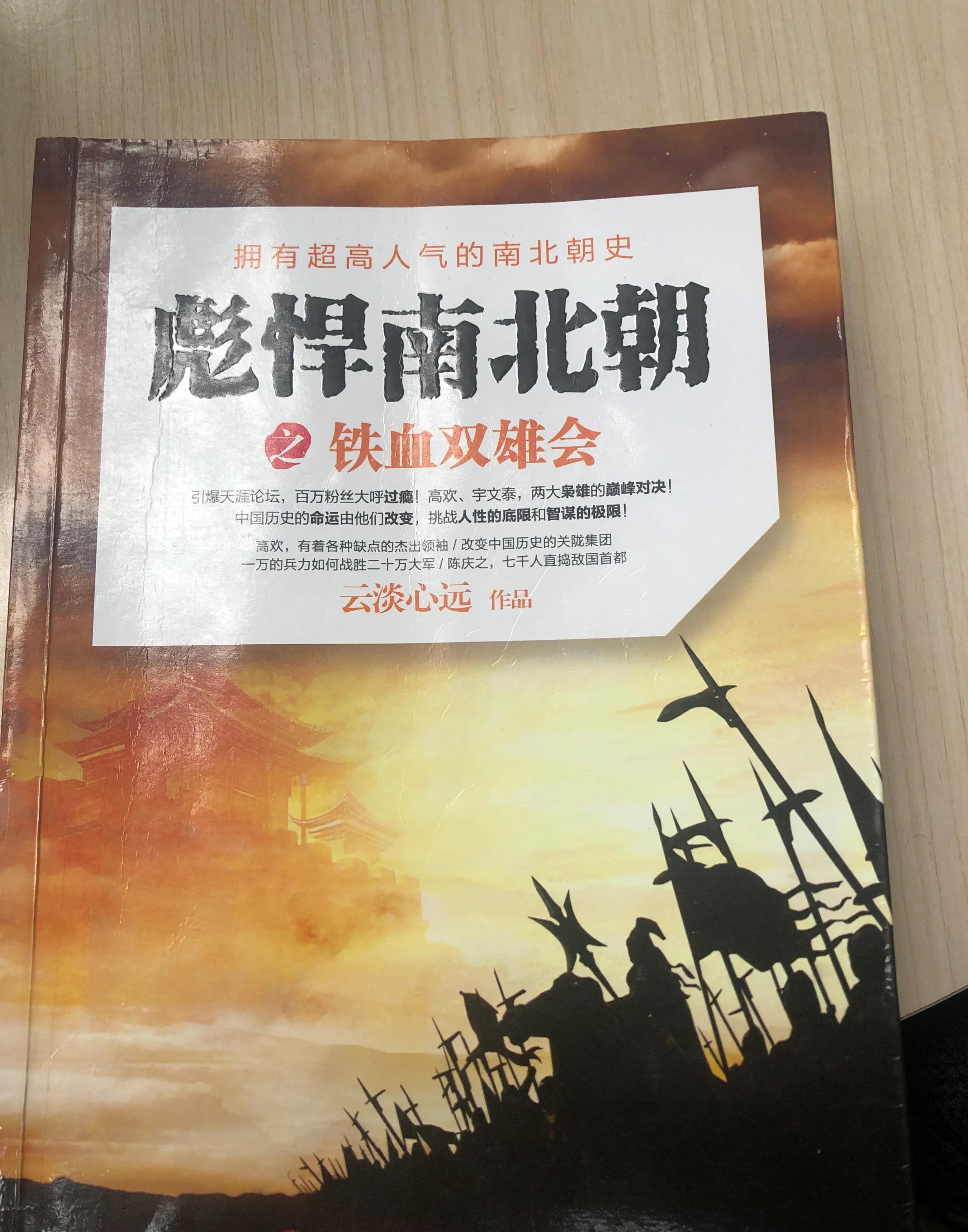Late Three Kingdoms! North-South scuffle
Emperor Zhong, who was in charge of the Guanzhong Daxingtai, was deeply jealous of Gao Huan, and was assassinated by Gao Huan in 534 AD
Nanliang -549), courtesy name Xiao Yan, founding emperor of Southern Liang, Emperor Wu of Erliang (502-549 CE) (464-e emperor, early strive to rule, late Yu Buddha fainted, reigned 5 AD,
47 years
In 502, Hou Jing of Qi launched a rebellion and invaded Jiankang, and Emperor Wu of Liang accepted the Northern Qi rebel general Hou Jing at Baipofang.
starve.
Chen Qingzhi (484-539), a famous general of Southern Liang, was originally an auxiliary army of Emperor Xiao xing of Liangwu in zhongnian, and in 528 he was ordered to slaughter 7,000 people to escort the former Northern Wei King Yuanju (oo) of the Northern Wei Dynasty to the north and drive thousands of miles north, invincible, and attacked the Northern Wei capital Luoyang, but was soon forced to withdraw, and fled back alone due to the total annihilation of the army of the mountain torrent.
Eastern Wei
Gao Huan (496- -547), a Han Chinese of Xianbei, a powerful minister of Eastern Wei, was the founder of the Northern Qi Empire. Born in Huaishuo Town (present-day Guyang, Inner Mongolia), his ancestral home was Tioo County ,bohai (present-day Jing county, Hebei), he participated in the Six Towns Rebellion in his early years, and later returned to Shun'er Zhu Rong, who after his death gained the trust of Erzhu Zhao, incorporated the remnants of the Six Towns, and in 532 AD raised an army in Hebei, defeated the Erzhu clan, welcomed Emperor Xiaowu, and controlled the Northern Wei dynasty as a chancellor. In 534, Emperor Xiaowu defected to Yuwen Tai in Guanzhong, and he made Yuan Shanjian emperor and moved the capital to Yecheng, known in history as Eastern Wei. After that, he specialized in the administration of the Eastern Wei Dynasty, and fought against the Western Wei regime controlled by Yuwen Tai in Guanzhong for many years, winning and losing each other, and died of illness in Jinyang (in present-day southwest Taiyuan, Shanxi) in 547. In 550, after the second son Gao Yang established Northern Qi, he was posthumously honored as Emperor Shenwu.
Gao Cheng (521-549), Gao Huan's eldest son, entered the imperial government at the age of fifteen, and after Gao Huan's death, he successfully received the fee, and then quelled the rebellion of Hou Jing and consolidated the power of Eastern Wei, and was assassinated in 549 at the age of twenty-nine. After the establishment of Northern Qi, he was posthumously honored as Emperor Wenxiang.
She was honored as empress dowager. Lou Zhaojun (01-562), born from the Xianbei clan, Gao Huan married his wife. Northern Qi was established
The Lord baby is all
In the early years, gao huan defected to Erzhu Rong, gao huan changed to Gao Huan after controlling the government, became a general of eastern Wei, after Gao Huan's death, due to discord with Gao Cheng, he rebelled, and after failure, he defected to Southern Liang, and soon rebelled, sent troops to attack the capital Jiankang, later called emperor, changed the name of the country to "Han", called The Emperor of Southern Liang, and the history called "Hou Jing Rebellion". He was defeated and killed in 552 AD.
Gao Ao Cao (491-538), born in the Bohai Gao clan of the Han dynasty in Hebei, ran rampant in the countryside in his youth, known for his bravery, after Emperor Xiaozhuang was killed, he and his brother Gao Qian and others rebelled against the Erzhu clan in Hebei, and later attached gao Huan, became a famous brave general of Eastern Wei, repeatedly meritorious service, and died in battle in 538 while fighting against the Western Wei army.
Huo Lujin (488- -567), a Jiaole man, came from a tribal aristocracy, defected to Erzhu Rong in his early years, and later followed Gao Huan, becoming the founding yuan assistant of the Eastern Wei and Northern Qi regimes, and died of illness in 567 AD, and his son Huo Luguang became a famous general of Northern Qi.
Western Wei
Yuwen Tai (507–556), Xianbei, Western Wei courtier, and Moji of the Northern Zhou Empire. Born in Daibei Wuchuan (present-day Wuchuan, Inner Mongolia), he participated in the Six Towns Rebellion with his father and brother, and then defected to Erzhu Rong, followed He Bayue into the Dingguan Temple, and succeeded he Bayue after his death. In 534, Emperor Xiaowu of Northern Wei went west to Chang'an and defected to Yuwen Tai, and he was awarded the title of Grand Chancellor, and in December of the same year, Emperor Xiaowu was killed by Emperor Xiaowu and Liyuan Baoju was made emperor, and he was the capital of Western Wei and Chang'an. After that, he specialized in the administration of the Western Wei Dynasty, and fought against the Eastern Wei regime controlled by Gao Huan in the Guandong For many years, winning and losing against each other, and died of illness in 556. After the establishment of the Northern Zhou Dynasty, he was posthumously honored as Emperor Wen.
He Basheng (?-544), a famous general of Northern Wei and Western Wei, and the brother of He Bayue, initially accompanied his father to suppress the Six Towns Rebellion, and then defected to Erzhu Rong, repeatedly made military achievements, Emperor Xiaowu served as an assassin in Jingzhou, and in 534 AD was defeated by the Eastern Wei general Hou Jing, defected to Southern Liang, and returned to Western Wei a few years later.
Li Hu (? - -551), a native of Northern Wuchuan (present-day Wuchuan, Inner Mongolia), followed his compatriot He Bayue into Dingguanzhong and later became a general under Zi wentai tai, one of the Eight Pillar States of Western Wei, died of illness in 551 AD, and was posthumously awarded the title of Duke of Tang after the establishment of Northern Zhou, and his grandson Li Yuan later established the Tang Dynasty.
